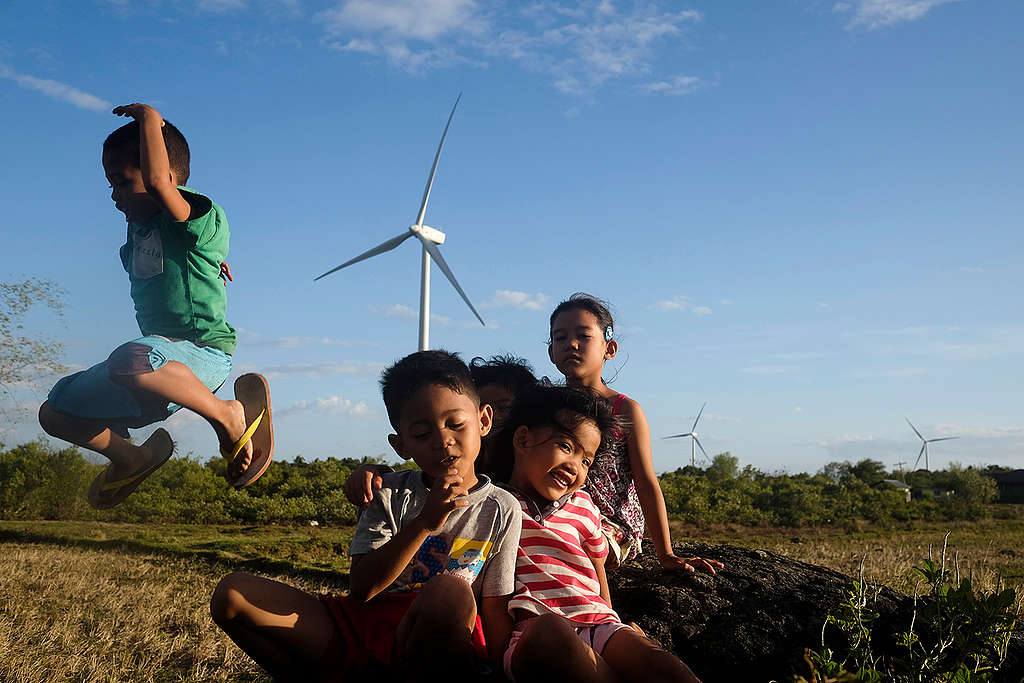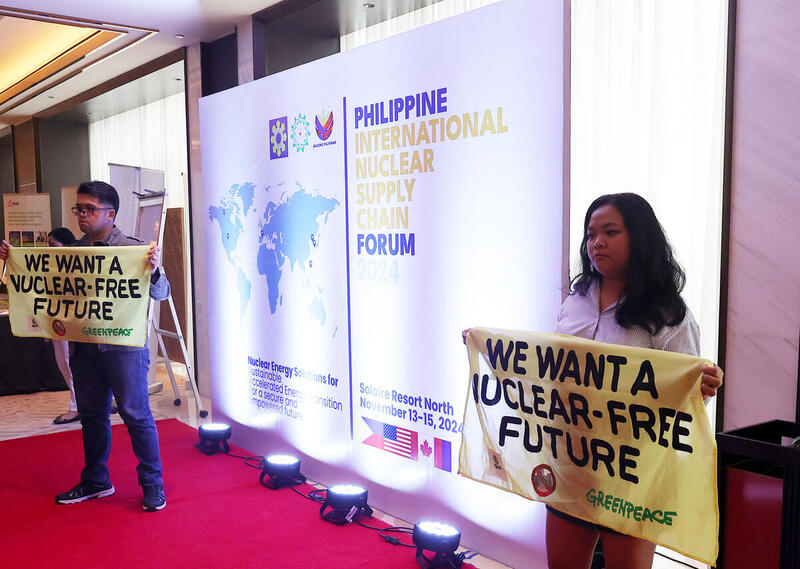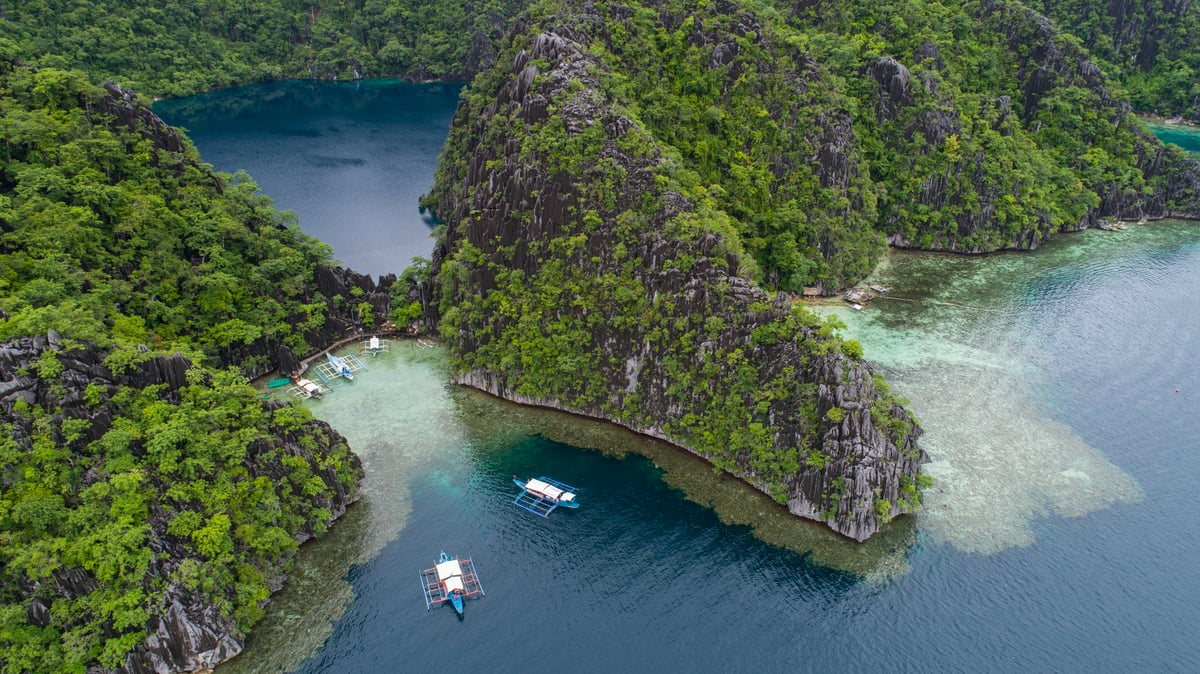Quezon City – Air pollution from fossil fuels—primarily coal, oil, and gas—is attributed to cause an estimated 27,000 premature deaths per year in the Philippines, and can cost the country up to approximately 1.9% of GDP in economic losses annually, according to new research by Greenpeace Southeast Asia.
The report, entitled “Toxic Air: The Price of Fossil Fuels” and co-published with the Centre for Research on Energy and Clean Air (CREA)[1], is the first of its kind to assess such costs. It says that globally, around 4.5 million deaths each year, and estimated economic losses amounting to USD2.9 trillion, or approximately 3.3% of global GDP, can be attributed to air pollution from fossil fuels.
“Fossil fuels are not only bad for the climate, they’re also bad for our health and our economy,” said Greenpeace Philippines energy transition campaigner Khevin Yu. “Every year, air pollution from fossil fuels takes millions of lives, increases our risks to strokes, lung cancer and asthma, and costs us trillions of dollars in economic losses. Filipinos have long been bearing the brunt of climate impacts, as well as health and economic impacts of dirty air. It’s clear that the country needs to transition to renewable energy sources and phase out fossil fuel power plants.”[2]
Key findings from the report show that an estimated 40,000 children die before their fifth birthday because of exposure to PM2.5 pollution from fossil fuels, primarily in low-income countries. Nitrogen Dioxide (NO2)—a byproduct of fossil fuel combustion in vehicles, power plants and factories—is linked to roughly 4 million new cases of asthma in children each year, with approximately 16 million children worldwide living with asthma due to exposure to NO2 pollution from fossil fuels. In terms of productivity, air pollution from fossil fuels is attributed to cause around 1.8 billion days of work absence due to illness each year worldwide, equating to approximate annual economic losses of USD101 billion.
In the Philippines, coal-fired plants contribute a lion’s share to air pollution in host provinces, while vehicular emissions are the main culprit in the country’s urban centers. Data from the Department of Environment and Natural Resources (DENR) show that vehicular sources account for 65% of air pollution in the country, primarily in Metro Manila. According to Greenpeace Philippines liveable cities campaigner Rhea Jane Mallari, air pollution is expected to increase given the projected 4.6% annual growth rate in energy demand [3]. This demand is consistent with the projected increase of road vehicles to 24.8 million by 2030, compared to a baseline of 6.6 million in 2010 [4].
“Vehicles are a major source of air pollution—but this data also tells us that improving mobility in cities is a key solution to the problem,” said Mallari. “Our transport systems urgently need to be reorganized so that they use energy and resources efficiently and operate without emitting harmful pollutants. Our cities need fewer and cleaner vehicles operating alongside greater use of public transport and widespread investments in shared mobility, walking and cycling. Immediate policy reforms are essential to promote and encourage inclusive, sustainable and equitable mobility systems for the well-being of people.”
“The solution to air pollution is also the solution to the climate crisis. The current administration must stop energy companies from building new coal plants, should retire existing coal plants and invest in clean energy generation, such as wind and solar. Cities and municipalities must start planning sustainable transport and mobility options by prioritizing environment-friendly public transport, along with safe walking and cycling infrastructure. The energy and transport sectors need to be transformed so they can be part of the solution. We all deserve cleaner air.” Yu added.
Notes:
[1] The Centre for Research on Energy and Clean Air (CREA) is a Finland-based independent research organisation focused on revealing the trends, causes, and health impacts, as well as the solutions to air pollution.
[2] A recent briefing paper from Greenpeace showed that the Philippines needs quicker uptake of renewable energy sources to be on target for a low-carbon development path, but that the country’s top energy companies’ plans with their coal portfolios are locking the country to fossil fuels: https://act.gp/dirtybusiness
[3] Ahanchian, M. et.al. 2013. Energy demand, emission forecast and mitigation strategies modeled over a medium-range horizon: The case of the land transportation sector in Metro Manila.
[4] Asian Development Bank. 2017. Pathways to Low-carbon Development for the Philippines.
Khevin Yu, Campaigner, Greenpeace Southeast Asia – Philippines, +63 998 966 4807, [email protected]
Rhea Jane Mallari, Campaigner, Greenpeace Southeast Asia – Philippines, +63 949 992 8770, [email protected]
JP Agcaoili, Communications Manager, Greenpeace Southeast Asia – Philippines, +63 949 889 1334, [email protected]

Renewable energy is the key to our country’s energy independence. But coal companies and politicians are holding us back.
TAKE ACTION



Discussion
\thankyou for this